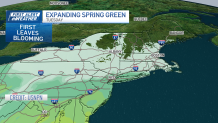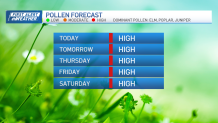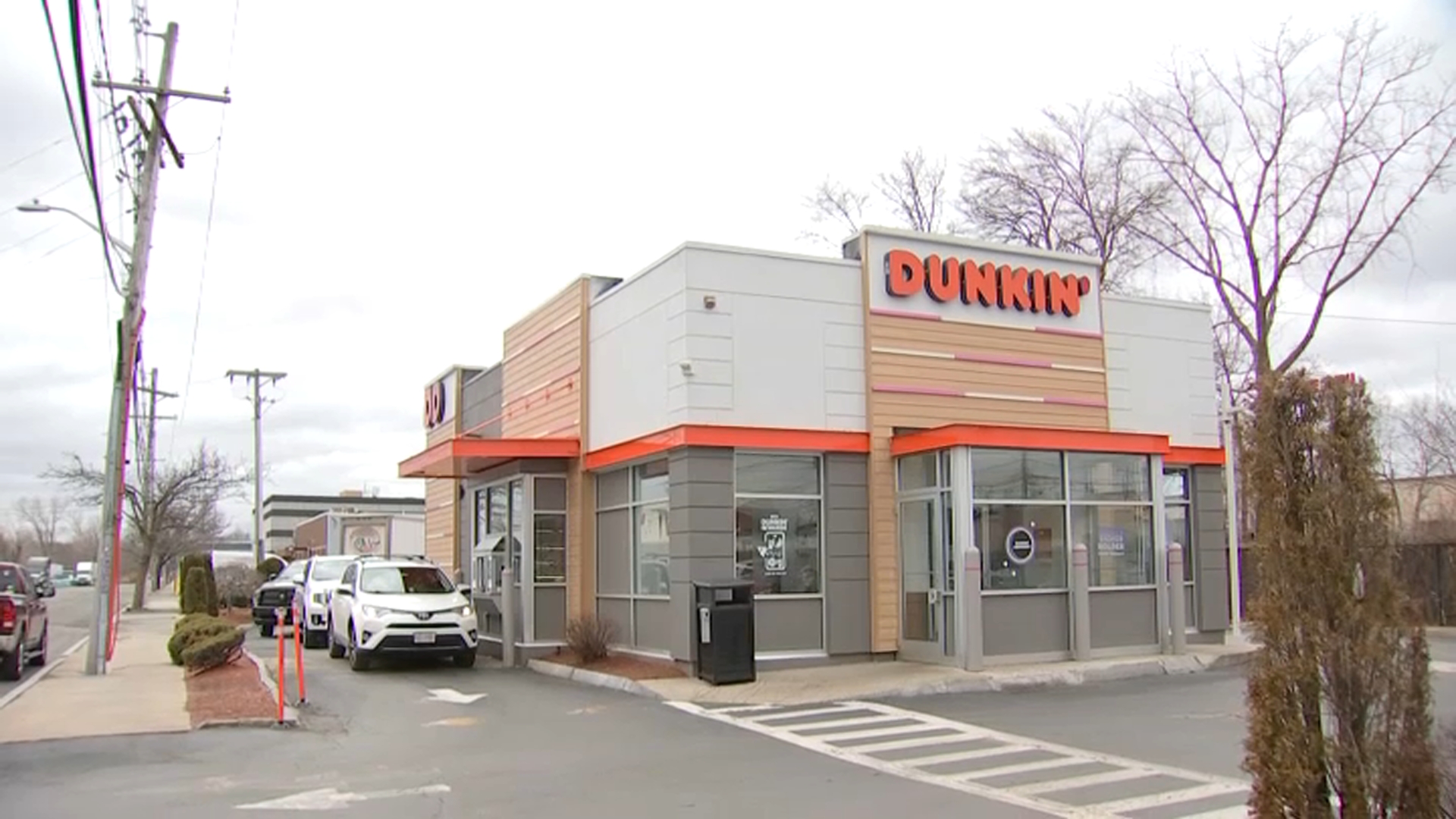Pollen season is upon us, which for over 25% of adults and children also means eye-watering, sneezing and sinus headache season.
Allergy season for Boston usually begins in March and lasts through summer, with alternating pollens being most prominent.
The dominant pollen from March to May is tree pollen. Pollen counts start to increase before trees hit full bloom, coming in from the south and southwest.

By mid-April, the leaves in the Boston area are returning, in addition to the pollen, hitching a ride on windy days.

Currently, Boston and MetroWest are experiencing medium-high to high tree pollen counts, with elm, juniper and poplar the dominant trees contributing to pollen levels.
Dry and windy days worsen allergies as pollen travels in the wind, making it harder to escape. And rain is a good friend of those with allergies, as the best time to be outside is right after a good rain, which tamps down the pollen.
While tree pollen is at its peak now, it begins to subside by June — and is replaced by increasing levels of grass pollen. By August, weed pollen (yes, that includes the dreaded ragweed!) becomes prevalent, as grass pollen subsides.
Dr. Jonathan Bayuk, an allergist and clinical immunologist with Allergy & Immunology Associates of New England, estimates he's seen 30% more patients suffering from allergy symptoms this year than last year.
"I would say, so far, we're setting up for the worst year that I've seen," he said, noting that people are already coming in for "emergency rescue medications" despite it only being April, early in the season.



